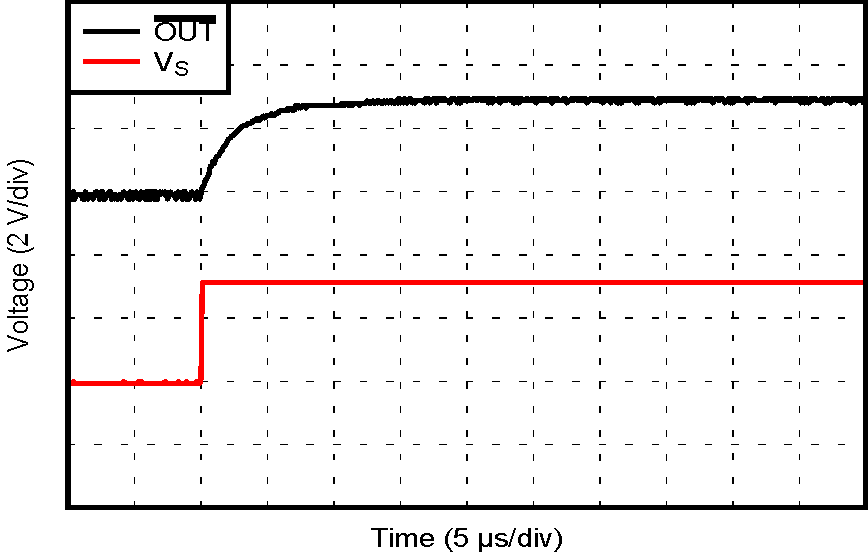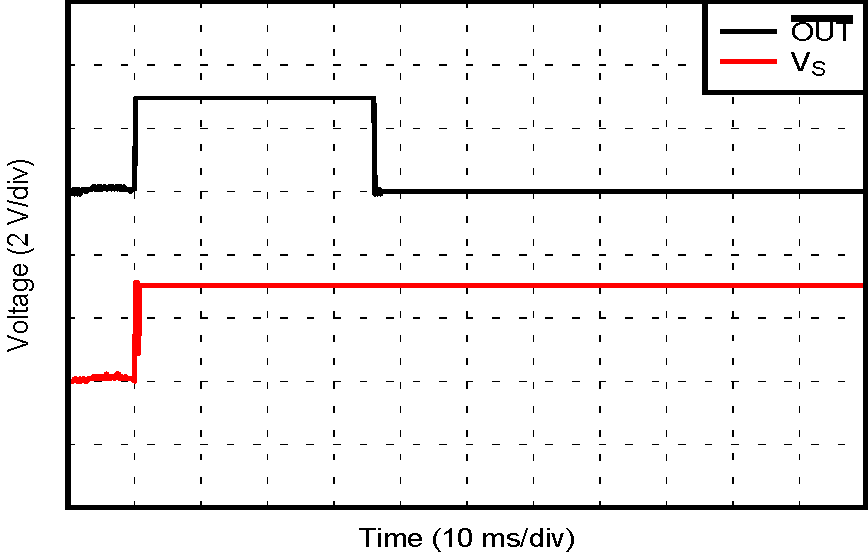ZHCSIX5E June 2009 – December 2018 TMP302
PRODUCTION DATA.
8.2.3 Application Curves
Figure 12 and Figure 13 show the TMP302A power-on response with the ambient temperature less than 50°C and greater than 50°C respectively. The TMP302A was configured with trip point set to 50°C. The TMP302B, TMP302C, and TMP302D devices behave similarly with regards to power on response with TA below or above the trip point. Note that the OUT signal typically requires 35 ms following power on to become valid.
 Figure 12. TMP302A Power-On Response,
Figure 12. TMP302A Power-On Response,
TA Less than 50°C
 Figure 13. TMP302A Power-On Response,
Figure 13. TMP302A Power-On Response,
TA Greater than 50°C